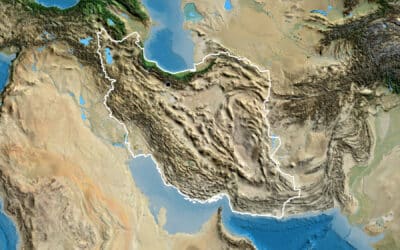I don’t think the Russian government fooled around with the 2016 presidential election. The U.S. government won’t release its evidence so that it can be judged by independent experts — and that makes me suspicious. I am not impressed that a bunch of “handpicked” (James Clapper’s words) analysts from three intelligence bureaucracies (not 17) have moderate-to-high confidence the Russians did it. An expression of confidence is not evidence. Besides, we’ve been through this before. The evidence for Iraqi WMD was a “slam dunk,” remember? The admonition to trust the intelligence “community” makes me laugh.
Those who insist the Russians did it make two conflicting claims: the Russians are said to be incredibly skilled at cyber espionage and were incredibly sloppy in hacking the DNC and John Podesta emails. Come on, what do you take us for? What skilled criminal leaves his fingerprints all over the crime scene? Would Vladimir Putin have left his calling card like a comic-book villain? What would Sherlock Holmes, Frank Columbo (that’s the lieutenant’s first name), or Adrian Monk say about that?
Something else feeds my doubt. Reports that Putin didn’t expect to keep Clinton from winning the presidency, but only wanted to damage her, are hard to believe. A damaged Clinton would still be more powerful than Putin, and the public would have backed her when she retaliated for election tampering. The competing theory that Putin expected Trump to win make the Russian quite the prognosticator because no one else — including Trump, apparently — expected him to win. And why would Putin want such a thin-skinned unpredictable narcissist in the White House? Because he had dirt on him? Perhaps. But in response to a blackmail threat, a President Trump would be as likely to tweet a jpeg of an ICBM with the words “Blackmail this, loser.” I suspect Putin preferred the devil he knew.
But maybe I’m wrong. Maybe the Russians are skilled at hacking (we would never intervene in a county’s elections) but bungled this one job big time. Those who now see Russians (if not Putin himself) under every bed warn that they’ll be back, in 2018, 2020, and beyond. Our electoral system is no longer safe. America is on the brink of disaster. What to do? What to do?
I have an idea. It’s so clever and foolproof that I’m surprised no one in the ruling elite and its mass media has thought of it. We can yank the rug out from under that dastardly Putin, and he’ll never bother us again.
How? Let’s make national elections so inconsequential that he would regard meddling as a colossal waste of his precious time.
Why would he care who got elected if the government couldn’t do much? Imagine a president and Congress that could not seize what rightfully belongs to others, could not put people in cages, could not hand out booty to well-connected interest groups and individuals, could not impede trade, could not prohibit peaceful activities, could not grant privileges, could not intervene in other countries’ affairs, could not oversee a vast bureaucracy dedicated to espionage, could not start aggressive wars, could not nurture a sprawling economy-distorting military-industrial complex, and could not do all the other things governments do today.
In other words, imagine if politicians and bureaucrats were judged by the same moral standards that the rest of us are judged by. The identity of the president of the United States would matter to the outside world less than the identity of the president of Switzerland. (This year it’s Doris Leuthard.)
If all that this idea accomplished was to keep Putin out of our business, lots of people should like it. But the benefits would be so much greater. For example, the campaign-finance problem would disappear overnight. Years of campaign-finance reform have accomplished nothing but make the problem worse, if the campaign watchdogs are to be believed. So here finally is something that would work. No one would bribe politicians who have nothing to deliver in return — just as no one shops where there’s nothing to buy. Campaign-finance problem gone! My proposal should be heartily welcomed by the anti-Citizens United crowd.
And here’s one last benefit from my proposal, which I almost overlooked: we’d be free.
































